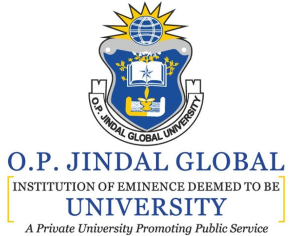
VMLS is being mentored by O.P. Jindal Global University (an Institution of Eminence) and Jindal Global Law School under an institutional mentorship agreement.





VMLS is being mentored by O.P. Jindal Global University (an Institution of Eminence) and Jindal Global Law School under an institutional mentorship agreement.



At VMLS, we spend all our energies unraveling what the law school of the future means, and should aspire to achieve.
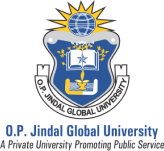

VMLS is being mentored by O.P. Jindal Global University (an Institution of Eminence) and Jindal Global Law School under an institutional mentorship agreement.
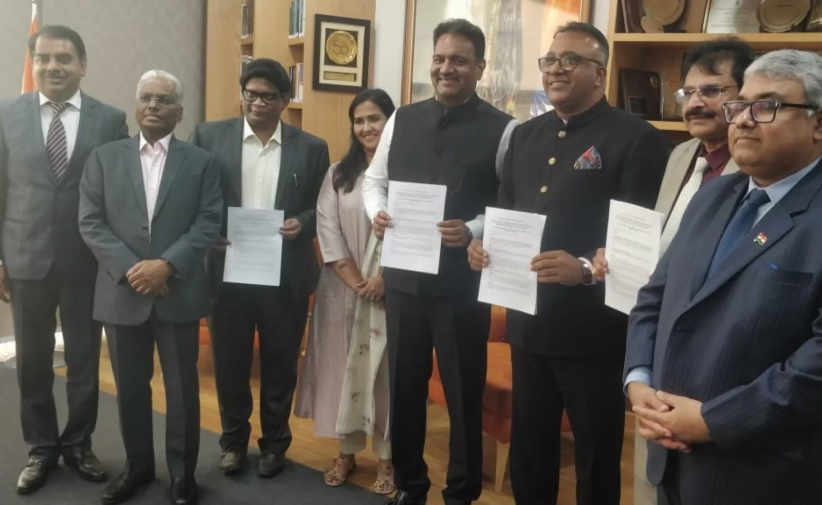
25 JAN 2024
Embark on a journey of legal scholarship and global discourse with the inaugural launch of VMLS International Law Review.

18 Oct 2024
The International Conference on Rivers 2024, scheduled for October 18-19, 2024, brings together scholars, experts, and practitioners to engage in interdisciplinary dialogue on the socio-legal aspects of river governance.

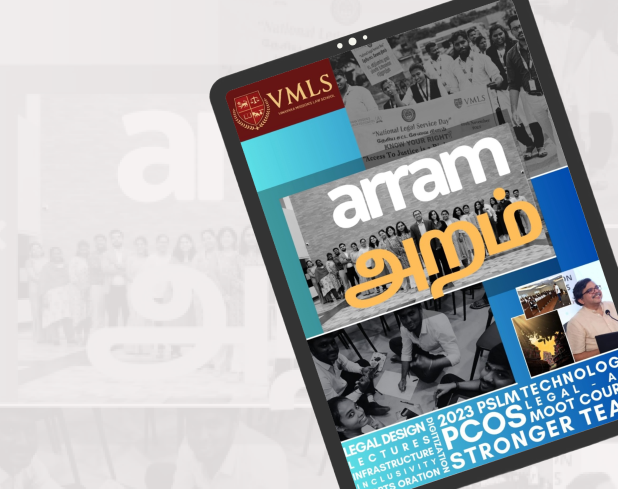
25 JAN 2024
Arram" – is a captivating chronicle of the remarkable events that shaped the past year at VMLS Law School. From student achievements to faculty insights, infrastructure showcases, and groundbreaking innovations, "Arram" is your window into our collective resilience and unwavering commitment to legal education.
14 Sept 2024
Chennai, 14th September 2024 — Vinayaka Mission’s Law School (VMLS), mentored by OP Jindal Global University, marked the commencement of its academic year with a grand inaugural ceremony for the 2024-25 batch.
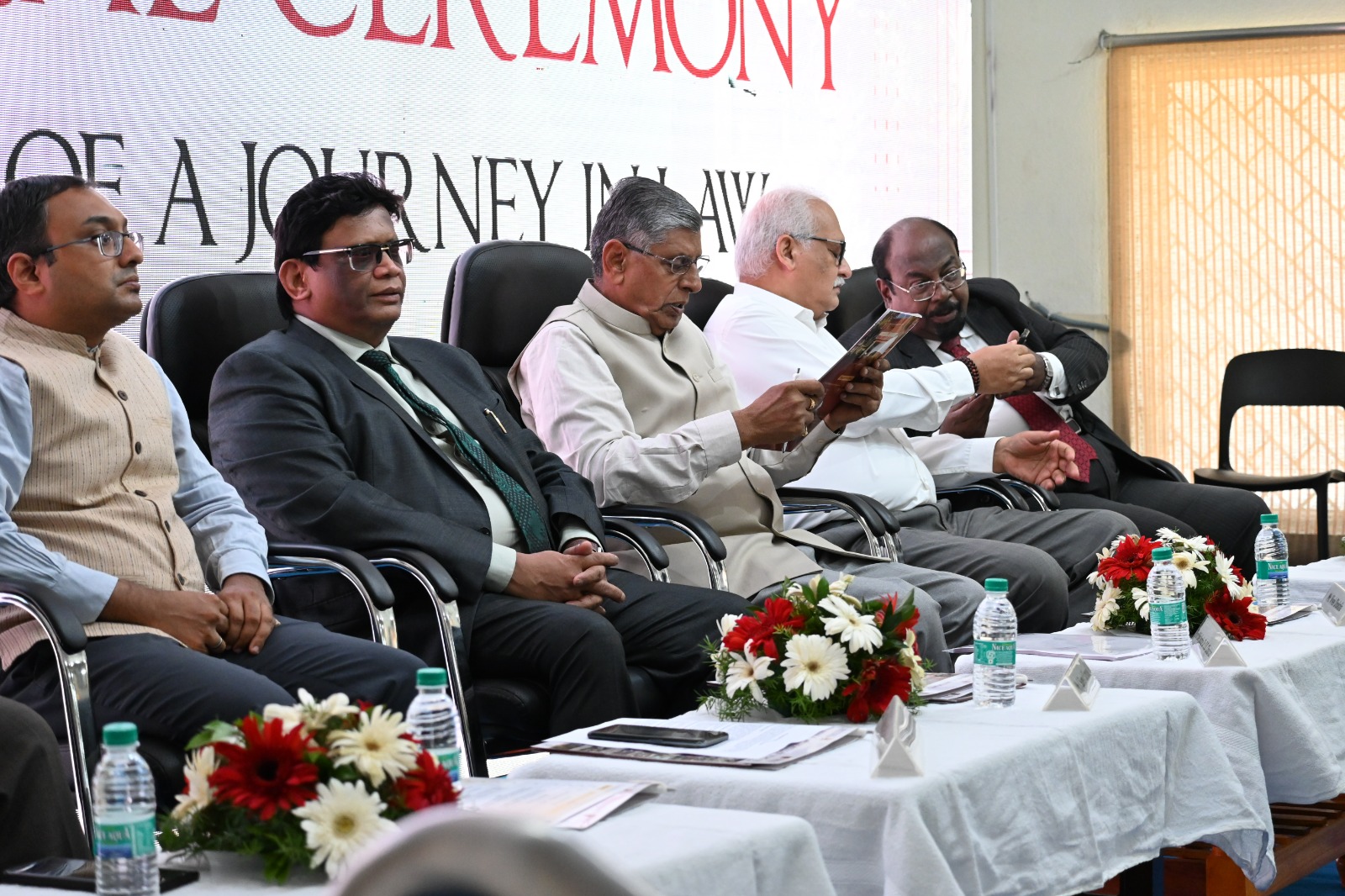
14 Dec 2024
The Free Legal Awareness Camp and Grant-in-Aid Programme, organized by Vinayaka Mission's Law School (VMLS) Global Tamil Law Centre in collaboration with Friends NGO, was successfully held on 14th December 2024.


The classrooms of VMLS are a testament to modern educational advancements, blending technology with design to create an environment ripe for learning.
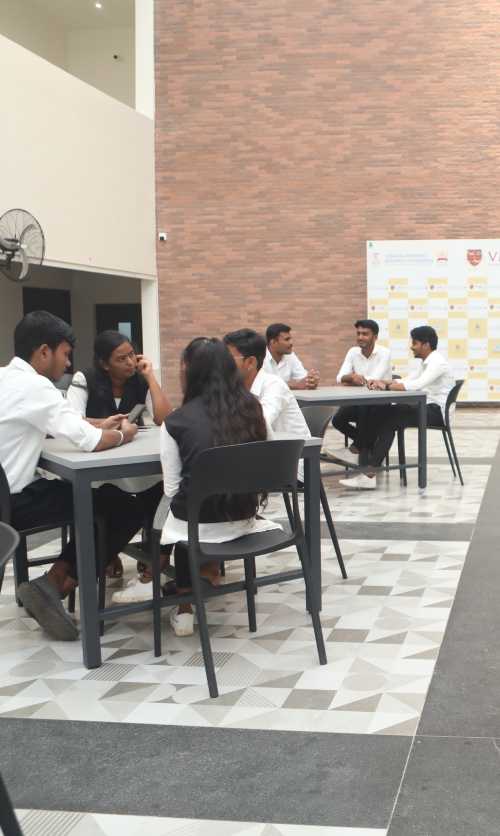
The atrium of VMLS fosters an atmosphere that is both inviting and conducive to academic pursuits.
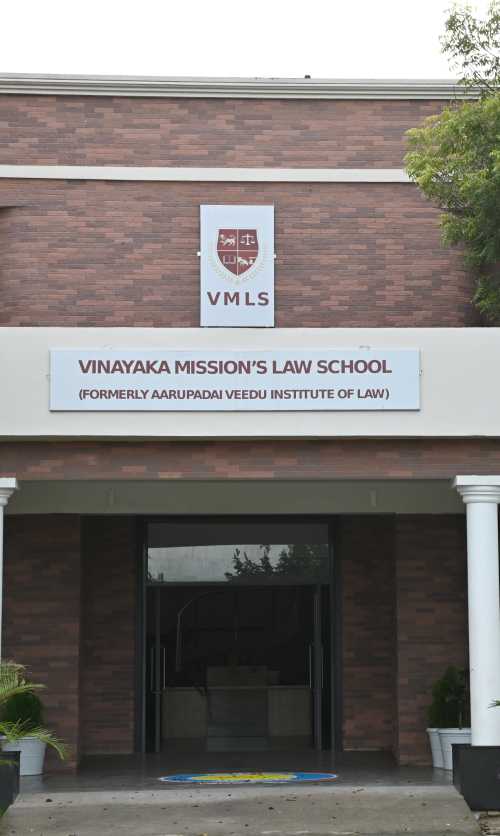
The main building of VMLS stands as a striking example of modern architecture, where functionality meets aesthetic precision

The VMLS Library represents a significant advancement in the integration of traditional library services with cutting-edge technology.
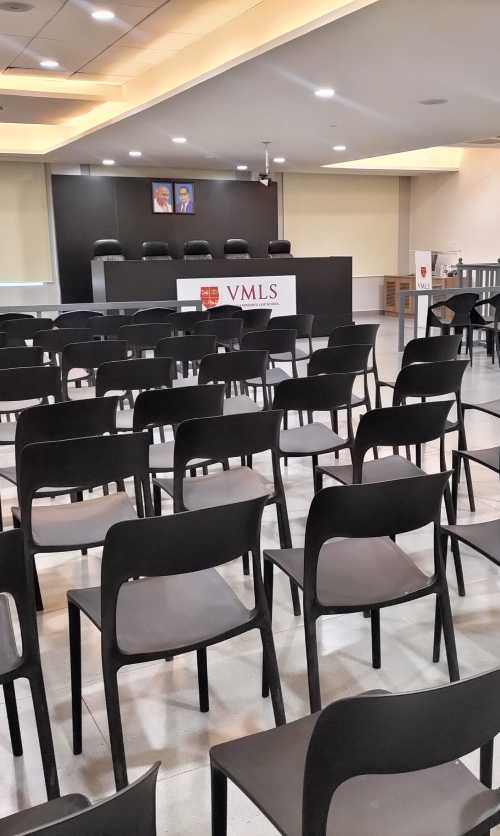
The VMLS Moot Court is a state-of-the-art facility designed to simulate real-world legal proceedings, providing students with a practical environment to develop their advocacy skills

The VMLS Seminar Hall is a modern facility designed to host a variety of academic and professional events.

The VMLS food courts are designed to cater to the diverse culinary preferences and economic backgrounds of the student body.

we provide a comfortable and secure student environment. Our hostel offers various room categories to suit your preferences, including single, double, triple, and four-sharing room occupancy



At VMLS, we spend all our energies unraveling what the law school of the future means, and should aspire to achieve.


VMLS is being mentored by O.P. Jindal Global University (an Institution of Eminence) and Jindal Global Law School under an institutional mentorship agreement.
Learn More
25 JAN 2024
Embark on a journey of legal scholarship and global discourse with the inaugural launch of VMLS International Law Review.

18 Oct 2024
The International Conference on Rivers 2024, scheduled for October 18-19, 2024, brings together scholars, experts, and practitioners to engage in interdisciplinary dialogue...


25 JAN 2024
Arram" – is a captivating chronicle of the remarkable events that shaped the past year at VMLS Law School. From student achievements to faculty insights, infrastructure showcases, and groundbreaking innovations, "Arram" is your window into our collective resilience and unwavering commitment to legal education.
14 Sept 2024
Chennai, 14th September 2024 — Vinayaka Mission’s Law School (VMLS), mentored by OP Jindal Global University, marked the commencement of its academic year with a grand inaugural ceremony for the 2024-25 batch.
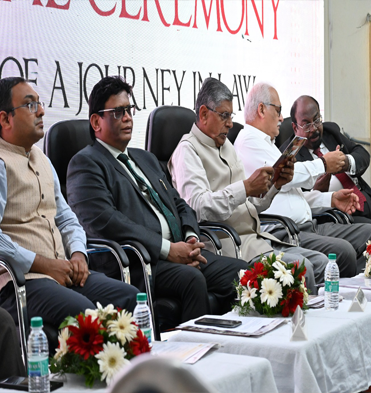
14 Dec 2024
The Free Legal Awareness Camp and Grant-in-Aid Programme, organized by Vinayaka Mission's Law School (VMLS) Global Tamil Law Centre in collaboration with Friends NGO, was successfully held on 14th December 2024.
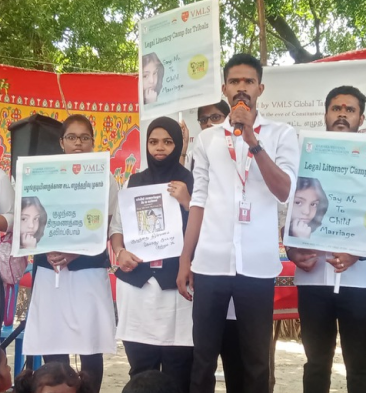

The classrooms of VMLS are a testament to modern educational advancements, blending technology with design to create an environment ripe for learning.

The atrium of VMLS fosters an atmosphere that is both inviting and conducive to academic pursuits.

The main building of VMLS stands as a striking example of modern architecture, where functionality meets aesthetic precision

The VMLS Library represents a significant advancement in the integration of traditional library services with cutting-edge technology.

The VMLS Moot Court is a state-of-the-art facility designed to simulate real-world legal proceedings, providing students with a practical environment to develop their advocacy skills

The VMLS Seminar Hall is a modern facility designed to host a variety of academic and professional events.

The VMLS food courts are designed to cater to the diverse culinary preferences and economic backgrounds of the student body.

we provide a comfortable and secure student environment. Our hostel offers various room categories to suit your preferences, including single, double, triple, and four-sharing room occupancy